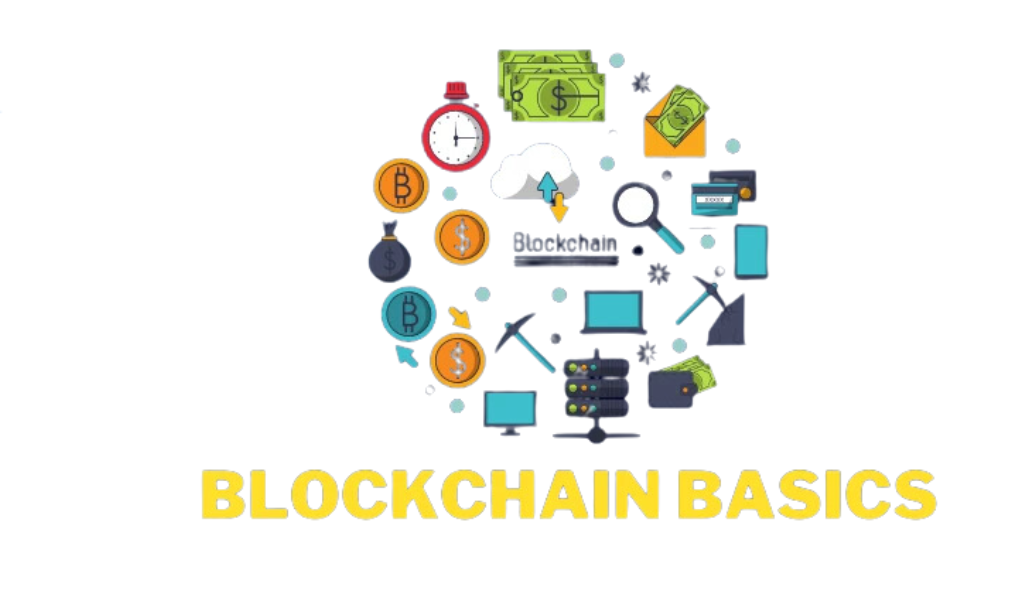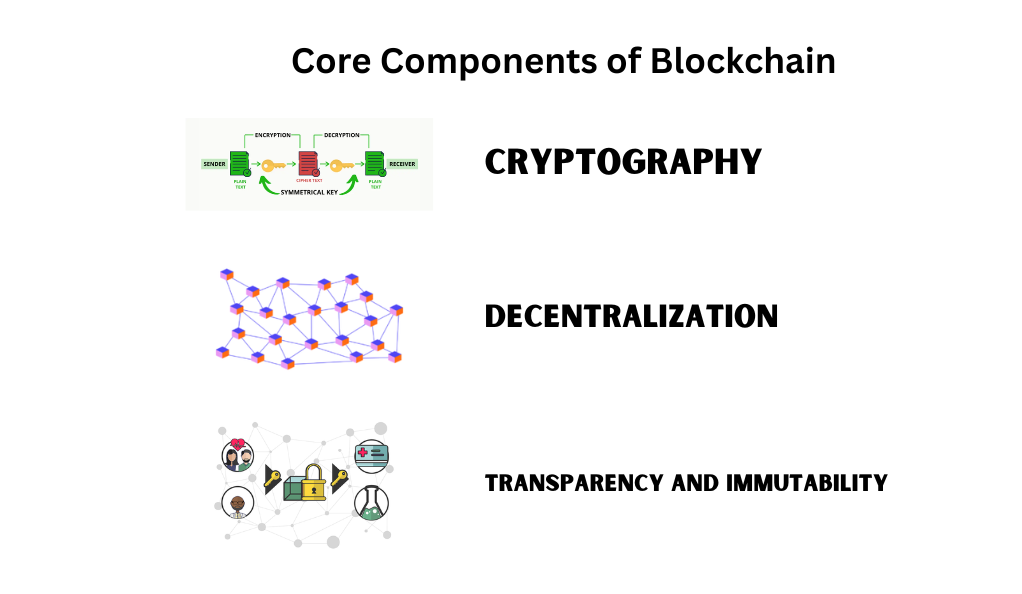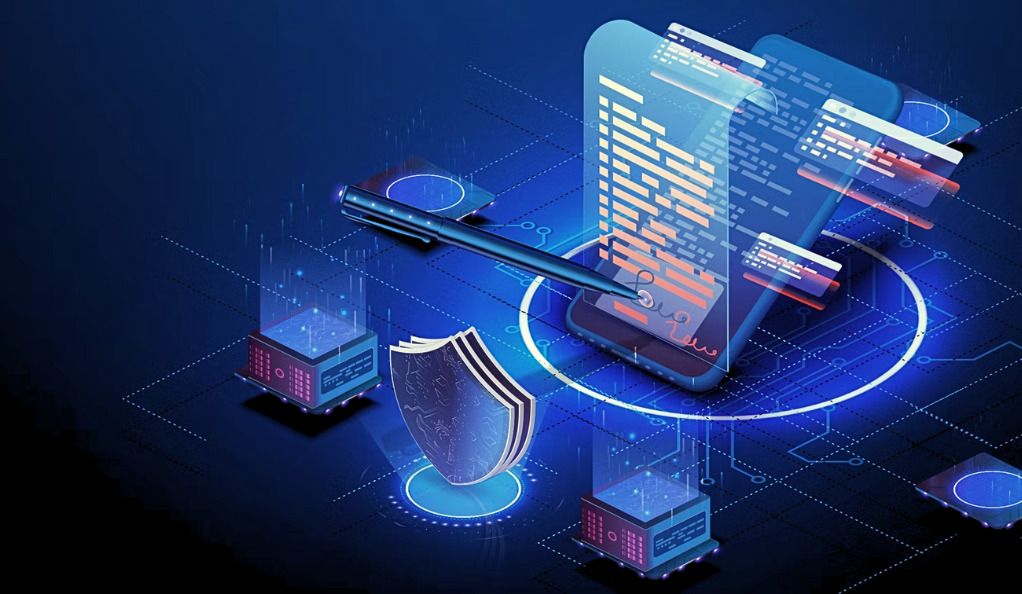We journey through the transformative landscape of blockchain technology, shedding light on its core components and groundbreaking applications. The piece delves deep into the intricacies of blockchain basics, emphasizing its pivotal role in modern tech. Furthermore, it introduces readers to the revolutionary concepts of smart contracts and decentralized applications (DApps). By exploring blockchain’s significant impact on the financial sector and highlighting its potential challenges and emerging trends, the article provides a comprehensive understanding of how blockchain is reshaping the very fabric of our financial future.
Blockchain Basics
Blockchain serves as the backbone of many digital revolutions today, including cryptocurrency. Understanding its essence and mechanics is paramount.

Introduction to Blockchain
Blockchain’s rise to prominence began with the advent of Bitcoin, presenting a decentralized currency solution. At a fundamental level, blockchain is essentially a chain of data blocks, each containing transaction information. These blocks, connected through cryptographic techniques, create an unchangeable chain. This structure ensures that once data is added, it remains permanent and tamper-proof. Such security forms the foundation of trust in cryptocurrencies.
Importance in Modern Tech
Blockchain’s significance extends far beyond cryptocurrencies. Its decentralized and transparent nature makes it a sought-after technology across various industries. From streamlining supply chain processes to offering tamper-proof voting systems, blockchain’s potential is vast and varied. The beauty of this technology lies in its versatility, and as we move forward, it’s evident that blockchain’s applications will only continue to grow.
Core Components of Blockchain
The robustness and reliability of blockchain stem from its foundational components: cryptography, decentralization, and transparency.

Cryptography
The bedrock of blockchain’s security is cryptography. Each block within a blockchain has a unique code termed as a hash. This hash changes with any slight alteration to the block’s data, signaling a potential breach. Moreover, blocks are linked using previous blocks’ hashes, creating a foolproof security web.
Decentralization
Traditional databases, like a SQL database, employ centralized control. In stark contrast, blockchain operates on a decentralized framework. This means that no single entity holds authority; instead, multiple participants validate transactions. Such a system not only reduces risks but also fosters a democratic digital environment.
Transparency and Immutability
In a blockchain, every participant can view all transactions, ensuring unmatched transparency. Furthermore, the immutability aspect guarantees that once data enters the blockchain, it’s irreversible. This combination of transparency and permanence makes blockchain a reliable and trustworthy tool.
Smart Contracts: Revolutionizing Agreements
Beyond mere transactions, blockchain introduces us to the world of smart contracts – self-sustained, automated digital contracts.
What are Smart Contracts?
Smart contracts can be visualized as digitalized agreements that execute autonomously once set criteria are met. Much like a vending machine, where inserting a coin delivers a snack, smart contracts perform predefined actions based on specific triggers. These are not merely concepts; smart contracts are actively revolutionizing sectors like real estate by automating processes like property transfers.
Benefits and Use Cases

The advent of smart contracts has made processes more streamlined, efficient, and secure. By eliminating intermediaries, they reduce potential fraud risks and save on additional costs. The applications are diverse, from automating supply chain processes to enabling seamless property transfers in real estate.
Diving into Decentralized Applications (DApps)
The world of blockchain also introduces us to decentralized applications, or DApps, which represent the next phase in application development.
Overview of DApps
Built on blockchain platforms like Ethereum, DApps are autonomous, with their backend code running on a decentralized network. Unlike traditional apps that run on centralized servers, DApps offer a more democratic and transparent operational model, ensuring user data remains private and secure.
Difference from Traditional Apps
The key differentiator for DApps lies in their control structure. Traditional apps often store user data on centralized servers, making them vulnerable to breaches. DApps, on the other hand, distribute data across a blockchain, ensuring robust security. This decentralized approach empowers users, giving them greater control over their data.
The Future of Finance
Blockchain’s profound impact on the financial sector is undeniable, paving the way for a more transparent and efficient future.
Blockchain’s Role in Finance
From expediting cross-border transactions to authenticating assets, blockchain is redefining how we perceive and operate within the financial realm. It’s streamlining processes, minimizing risks, and introducing levels of transparency previously deemed impossible.
Challenges and Opportunities
Despite its potential, blockchain isn’t devoid of challenges. Scalability remains a concern, and the energy-intensive nature of some blockchain processes, especially mining, raises sustainability questions. However, innovative solutions like the Proof-of-Stake consensus mechanism are emerging to address these concerns, pushing blockchain closer to its optimal potential.
Emerging Trends in Finance
The horizon of the financial landscape showcases exciting trends, with blockchain at their core. Concepts like decentralized finance (DeFi), central bank digital currencies (CBDCs), and tokenized assets indicate a paradigm shift. As these trends gain traction, they promise a more inclusive, transparent, and efficient financial ecosystem.
Conclusion
Blockchain, often dubbed the “technology of trust,” is more than just the backbone of cryptocurrencies. Its expansive potential, from automating contracts to fostering decentralized applications, is revolutionizing industries, especially the financial sector. The journey ahead is promising, with blockchain championing the cause of a transparent, inclusive digital future.
FAQs
Blockchain is primarily a decentralized ledger designed to record transactions. Its primary objective is to ensure secure, irreversible, and transparent transactions across diverse parties, eliminating intermediaries.
Smart contracts are automated digital contracts that execute actions based on specific triggers. They are self-sustaining and activate when predefined conditions or criteria are met, bypassing the need for third-party involvement.
While both aim to serve users, DApps operate on a decentralized network, ensuring user data remains secure and private. In contrast, traditional apps operate on centralized servers, often controlled by single entities.
Blockchain is introducing transparency, efficiency, and security to financial processes. Its applications range from enabling faster transactions to asset authentication, marking a new era in finance.
Some challenges include scalability issues, energy consumption, and regulatory concerns. However, continuous innovations are addressing these challenges, ensuring blockchain’s sustainable growth.
Bitcoinnewsmagazine is committed to providing impartial and reliable insights into cryptocurrency, finance, trading, and stocks. It's important to note that we do not provide financial advice, and we strongly encourage users to conduct their own research and due diligence.
Read More
